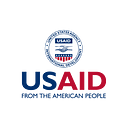Finding a New Home and a New Skill in a New Land
Violence and war forced them to flee their homes, their country, and everything they knew. Now, a new training program supported by USAID is giving refugees in Djibouti a new skill set and hope for a better future.
Mahad Ali Nour was a teenager when the war in Somalia reached his family’s home in the country’s capital city of Mogadishu. He fled with his family to Djibouti and eventually arrived at the Ali Addeh refugee settlement in Djibouiti’s Ali Sabieh region, where became one of Djibouti’s approximately 34,000 refugees and asylum seekers from Ethiopia, Eritrea, Somalia, and Yemen.
Most refugees arrive with few assets, making them dependent on relief organizations and the Government of Djibouti for assistance and straining the capacity of the limited humanitarian resources that are available. Finding work can be difficult for refugees as they often lack the needed skills or education.
In the beginning, Mahad was able to get by on small, informal jobs and humanitarian assistance. However recent shocks to the food production system, climatic changes, COVID-19, declining household incomes, and high food prices have made living situations in Ali Addeh more challenging. After getting married and having a baby, he knew he needed to do more.
“Having a family made me realize that I needed a sustainable job to be able to afford a decent life for my family,” Mahad said.
Like Mahad, Ilias Mohamed Abdo is also a Somalian refugee in Djibouti working to provide a better future for himself and his family. He worked as a taxi driver, beginning his shift in the early morning and often driving until 11 pm in order to support his three brothers and seven sisters. But he also wanted more for his family.
Therein lies the dilemma. While there is a demand for labor in both the non-formal and formal sector, many migrants and refugees lack the technical and professional skills necessary to secure local employment and integrate into Djiboutian society.
This is where USAID, the Government of Djibouti, and humanitarian partners have stepped in. With support from USAID’s Bureau for Humanitarian Assistance, the Djiboutian government established logistics training programs for migrants, refugees, and youths in collaboration with the UN World Food Programme (WFP) and UNHCR.
As part of this larger effort, refugees residing in Djibouti are taught various skills, such as how to operate a forklift, maintain a store, or manage a warehouse. They also learn about the best methods and practices for ordering, storing, maintaining, and issuing merchandise — all over the course of six months.
This program — located at the Ministry of the National Education and Vocational Training logistics training center in Djibouti City’s Balbala Municipality and at WFP’s Humanitarian Logistics Base near Djibouti port — is intended to help participants secure employment as skilled logistics personnel in the private sector. At the end of the program, students received both a diploma, indicating the successful completion of the workforce-development course, and a forklift certification.
Both Mahad and Ilias were part of the original cohort.
“When I first joined the training, I did not have much background in logistics, but since I could drive cars, I was particularly interested in learning to drive trucks, and in this case a forklift,” Mahad said. “Once I receive my diploma, I will immediately start door to door visits to find a job, with a focus on handling and transit companies.”
Ilias had a similar experience. As a taxi driver he only has a one hour break in the afternoon. He uses it to complete his training at the Logistics center.
Since beginning the training in March 2021, Ilias has learned best practices in Occupational Safety and Health procedures, how to load and unload goods, and store products in the warehouse. Following the conclusion of the program, Ilias hopes to leverage the knowledge he has acquired and his language skills to secure employment with an international logistics company abroad or in Djibouti.
Before beginning the program, both men were searching for a path forward and the means in which to provide their families with a decent life.
Now, they have a road ahead, a plan, and a skill set that is in demand. Mahad emphasized, “This is where I see myself in the future.”
Get more information on USAID’s humanitarian response in Djibouti.
Follow USAID’s Bureau for Humanitarian Assistance on Facebook, Twitter, and Instagram for updates.
